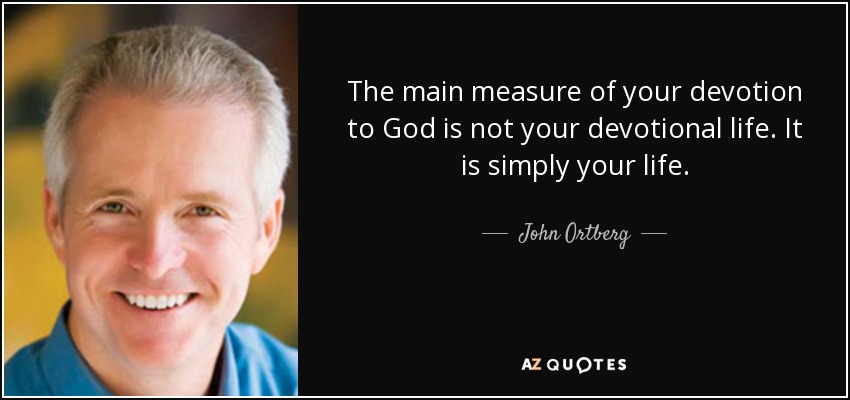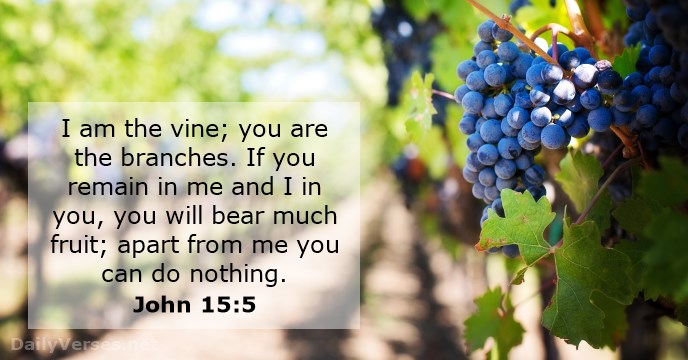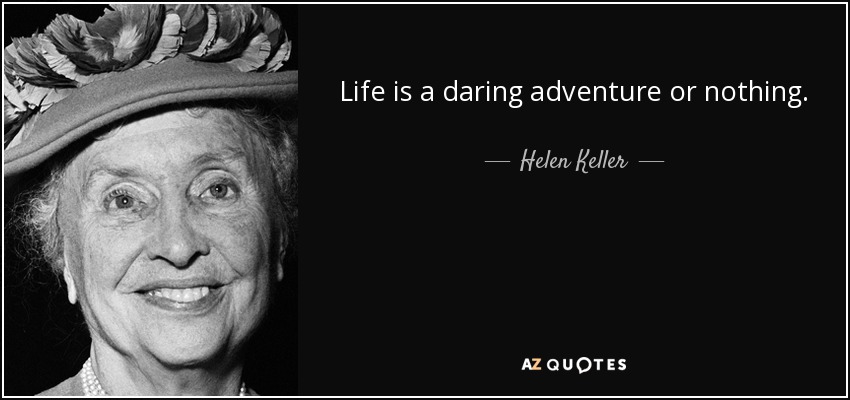Click here to return to Blog Post Intro
A Search for More
God has made two things very clear:
- All of life, everything, is all about love. God’s true identity is love Himself: His name is love, He is love, and the most important thing in life is to love Him.
- The second most important thing in life is people. Hawkins noted, “My goal, my job for the rest of my life, is to love them. I am called to love (as described in Matthew 22:36–39; Mark 12:29–31). My job was to love people. Not because I needed them but because God asked me to, because they mattered to Him. People are the crowning achievement of His creation, and they were the reason He sent His Son.”
Love is a choice, and people are the only things that matter. Bill Hybels once said, “Ninety percent devotion to Christ is 10 percent too little.”
The Stunning Breakthrough
Data reveals that involvement in church activities does not predict greater spiritual growth. Some people who aren’t very involved at church have a deep love for others and God. In the same way, other people who are very much involved in everything your church offers have lives not characterized by love. Simply put, involvement in stuff at church does not predict someone’s love of God or love of others.
If church activity does not lead to intimacy with God or to becoming a more loving person, what does move people closer to God?
While at Willow Creek Community Church, Greg Hawkins shared how a survey they used helped them understand congregation needs. One question on the survey—“How important is Jesus to you?”—enabled the researchers to group the congregation into four very distinct groups:
- People who for the most part believe in God but are unsure about Jesus. Their relationship with God is impersonal. They might typically describe themselves in this way: “I believe in God, but I am not sure about Jesus. My faith is not a significant part of my life.”
- People who do believe that Jesus is God’s Son and who are working on what that means for their lives. Their relationship with Jesus has become personal but not close. Most of them would say, “I believe in Jesus and am trying to figure out what it means to get to know Him.”
- Folks who have a close relationship with Jesus in which they look to Him for help, comfort, and direction. They have chosen to have Him influence their daily lives. They might describe themselves by saying, “I feel really close to Jesus and depend on Him daily for guidance.”
- People who describe their relationship with Jesus as the most important relationship in their lives and say that it defines everything they think and do. The big difference between Group 3 and Group 4 is that to the people in Group 3 Jesus is important to their lives, but the focus is still on their lives, while Group 4 people have decided that their own lives don’t truly matter. Christ has become the center of their lives. They have set aside the agendas for their lives and are attempting to live for God.
Researchers learned that every single measure of love of others and love of God increased dramatically up and to the right as you went from Group 1 all the way to Group 4. Group 4 people—which represents about 12 percent of all people in churches surveyed, or one in eight—
served others, shared their faith, were generous with their resources, and had higher levels of peace, patience, and joy. Spiritual growth was about increasing intimacy with Christ. Intimacy, not activity. Loud and clear.
The Way It’s Supposed to Be
We don’t want anyone, even God, to be the boss of us. We want to be our own kings and queens and build our own kingdoms. At the same time, we want to feel God’s love and presence. However, we can’t have it both ways.
In our more honest moments, we know that our tendencies to want to do things our own way, to be selfish or self-centered, are just a part of who we are, and we also know that our self-focus keeps us from experiencing intimacy with God. Most of us live in our own kingdoms. We rule the “Kingdom of Me.”
We tend to measure kingdom success by standards imposed by other people: How much stuff do we have, and how good is our stuff compared to the stuff of other people?
Unfortunately, some of us view “accepting Jesus” simply as a “get out of hell” card. We might not put it this crassly, but we view God as Someone who can assist us with our lives. We’ve brought God into our kingdoms as a sort of high-level advisor. But we are still the CEOs, the kings or queens.
In order to experience the best God has for us, something has to die.
From Inside to Outside
Hawkins explains his own journey, “Instead of asking God to help me with my life, I had to die to my own life and begin living God’s life. I had to find my way out of the Kingdom of Me.”
Jesus said, “Whoever finds their life will lose it, and whoever loses their life for my sake will find it” (Matthew 10:39). Sometimes we try to add a bit of God to our lives, to our kingdoms. We want to bring God into our box, have Him help us fix it up. But ultimately, that doesn’t really change us in the way we’d hoped. It doesn’t satisfy us.
Praying “Your kingdom come” means asking that God’s kingdom would come into my life and other people’s lives—not someday, but now. That is what Jesus was saying. He was not asking the Father to bring all this to an end now. He was praying that we would embrace His kingdom in the here and now. That we would experience the freedom He brings, not someday in heaven, but right now.
Praying “Your will be done” means you are willing to abandon your own kingdom so there will be only one kingdom under one King and that King’s will would be done on earth (in your life) as it is in heaven. In daily surrender, we move from wanting our own life, to wanting God’s life for us, to simply wanting God. Because we realize if we have God, we have everything we need.
Each day, begin by deciding where you want to live: inside the box where you are king or queen, or outside the box where God has everything waiting for you.
From Me to We
Do you consider the destination of our spiritual journeys as God—that you’re on a quest to know God better, to get closer to Him? Our paradigm must shift—from “Me” to “We”.
Shifting from “me” to “we” means you don’t ask God to be with you in a particularly challenging situation you might face. Rather, you become aware that He’s already there doing life with you. And you’re aware of that so deeply that you begin to think “we” instead of “me.” God is not assisting us. Rather, He’s on point, leading the way, but with us and in us.
Too often we are running too fast; our lives are frantic. Through the words of Psalm 46:10, God invites us to “be still, and know that I am God.” We must choose to change our actions from hurry and franticness to stillness. We must regularly choose to be still and simply know that God is with us, that He loves us. We must move the focus from “me” to God, to knowing that He loves us and is for us.
“Be still and know” is an action that feels, ironically, like a lack of action, so it’s hard for us. We are oriented toward action, doing, tasks. We even think of our quiet time as something we have to “do,” reading a certain passage or praying for a certain amount of time. When we get quiet and alone with God, we move closer to God. Remember, each day, find time to be still, even if it’s only for five minutes.
From Head to Heart
Reason and intellect are wonderful gifts, but focusing on them exclusively can keep us in our heads and prevent us from engaging our hearts. And yet, this is the shift we must make—from our heads to our hearts—if we want to access a life of more.
People who are closest to God interact with the Bible every day, or nearly every day. They read, study, reflect, and memorize. More compelling than their habit is their motive: they seem hungry for God and see the Bible as just as essential to their lives as food. They study, but their engagement goes beyond intellect to what can only be described as deep, hungering love. Engaging with the Bible not only draws us closer to God but also enables us to love others more deeply.
When we fall in love with the Bible, we begin to experience more of God. It’s when we shift from our heads (thinking about the Bible) to our hearts (falling in love with the Bible) that we move closer to living a life of more.
As Eugene Peterson described in Eat This Book, “Reading that enters our souls as food enters our stomachs, spreads through our blood, and becomes holiness and love and wisdom.”
If you do only one thing to put God at the center of your being—to allow Him to be in you rather than out there—the research shows that the most effective strategy is to engage the Bible. Feast on His words. Eat the Bible as you would a great meal.
The Benedictine monks handed down a practice known as lectio divina that many Christians use to engage the Bible. Very simply, it consists of four parts or steps in reading the Bible: read, meditate, pray, and contemplate.
From Closed to Open
You cannot access the deepest levels of intimacy with God unless you also open your life to others in community. Deep spiritual friendships with other people will allow you to experience greater intimacy with God. This reflects the truth about how you were created: to live in community. It is not good for human beings to be alone.
Community is God’s plan A, and there is no plan B. We all need (whether we admit it or not) a place where we can tell each other the truth. In community, we help each other break free of the messages from the culture around us—messages that tell us that we really should be building the Kingdom of Me, that we have to take care of ourselves, that others can’t be trusted.
Spiritual friendships are between peers, but we also need relationships with people who know more than we do, and we need to offer our wisdom and help to those who are less experienced in living a life of faith. In other words, we need to have mentors, and we need to be mentors. Our research showed that people who live a life of more seek out mentors and coaches.
Each day, decide to open yourself to the people in your life, looking for those who can become part of your relational web. You need them and they need you.
From Full to Empty
To love, in God’s economy, means to serve others. Serving others begins with those who are close in—our family, friends, people we see every day. People we rub shoulders with every day may appear to have it all together, but often their smiles mask crushing burdens they carry alone. A life of more comes when we see them as God does.
From Willow Creek’s research, those who reported the highest levels of love for God also, over time, reported higher levels of love for family and friends, as well as higher levels of love for strangers—people outside of their normal circles.
Frederick Buechner, in his book Wishful Thinking: A Seeker’s ABC, wrote, “The place God calls you to is the place where your deep gladness and the world’s deep hunger meet.” Each day, remember your job is to love, which means to serve, which means to die to what you want in order to give people what they need, which is a touch from God. Start close in with those nearest and dearest to you.
From Next to Now
So what’s the shift in our actions we must make in order to live in the now and not in the next? It’s been described as practicing the presence of God, or living in the present moment (e.g., “slow down to be with”). Slow down so that you don’t miss the moment, miss your life, miss a life of more. We must go slower and, at that saner, gentler pace, engage with and love people.
John Ortberg, whom Greg Hawkins worked with at Willow Creek for almost a decade, recalled a time when he asked his spiritual mentor, Dallas Willard, what he needed to do to be spiritually healthy. Dallas wisely replied, “You must ruthlessly eliminate hurry from your life.”
This is the truth: adding more spiritual activities to your life will do nothing if you’re living at a hurried, frantic pace. You have to slow down. You have to be with God and with people. Eliminating hurry is the secret to the spiritual life because it enables you to be with God and be with others, to abide fully with God and respond out of the fullness of His love to love other people.
Ask yourself, “What percentage of my day did I live fully present before God and the people He put in my life?” And conversely, “What percentage did I live thinking about what’s next?” When we are fully present, not rushing past our lives, we are able to pay attention to promptings and to respond to them. We’re able to listen to God and to the people around us.
Some of our rushing around is unnecessary; we bring it on ourselves by procrastinating on the one hand or overplanning on the other. If you leave everything until the last minute, you’re always going to be in a rush. But you can also spend way too much time planning, reviewing your plan, revising your plan, taking another look at it. Give it a rest. All that “stuff” is not the source of your joy and peace. Give it only the priority it deserves. Slow down. Be with. Remember, Jesus said, “Don’t be anxious about tomorrow” (see Philippians 4:6).
Each day, focus on what’s happening right now instead of worrying about what’s next. Slow down to be with God and others. Do not miss your life.
Press Start for More
A life of more means letting go of the life of less. You’ll have to risk letting the life of less die. Your life of less might be pretty good, but once you know there’s more and that real people are actually experiencing it, you need to be willing to take that step.
What do you want? An ordinary life with some of God, or life itself?




